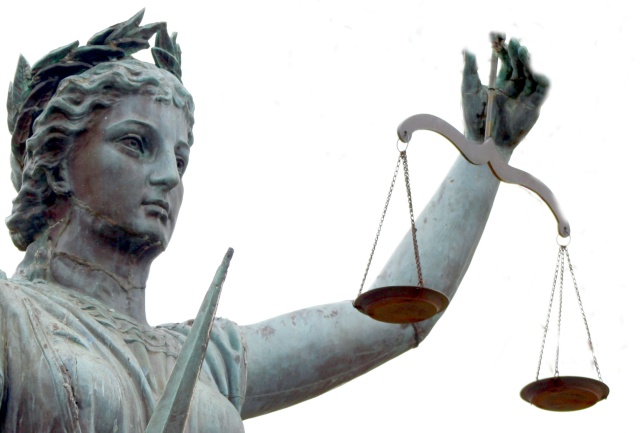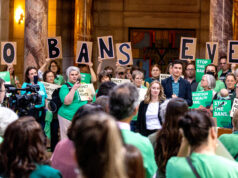United States v. Texas … what fun.
The facts are complicated. They always are when the legal story is good and the outcome may be important for generations. In the light most favorable to the lower court’s prevailing party (i.e. “the people,” in effect), here is a brief summation:
Frustrated at Congressional inaction on the issue of immigration, President Barack Obama instructed the secretary of homeland security to publicly tell her immigration agents to pretend a bill that failed to pass Congress was the law when it comes to those agents’ use of discretionary powers to order the removal or non-removal of specific illegal aliens.
In even simpler terms for those who opposed Obama’s actions: The Dream Act was put before Congress. It failed. The President enacted it anyway by executive decree. This was an open flaunting of the law by a lawless president.
From the government’s side, however, the summary goes more like this: The president said to his secretary of homeland security, “Tell your field agents to continue not doing anything about people they weren’t going do anything about anyway, and also tell them to let those people know we’re not going to do anything about them so they can sort of come forward and be counted as proper second-class citizens.”
By “second-class citizen,” I mean an undocumented immigrant who has been told by the federal government that he or she is not going to be removed. This is known in immigration-speak as “deferred action.” Deferred action is important because it means said immigrant can declare his or her deferred action to potential employers, lenders, educators, spouses or pretty much anybody else who might care about the prospect of the immigrant suddenly disappearing. It’s kind of a big deal.
Essentially, Obama issued guidance on immigration enforcement to the effect of, “Cut the crap and acknowledge reality.”
Texas and some other states that choose to give benefits to those deemed to be second-class citizens by the federal Department of Homeland Security have claimed this executive act of loudly proclaiming the obvious has caused them harm because they will have to give out more benefits to more second-class citizens as more of said second-class citizens realize that they are, in fact, second-class citizens, who can therefore start demanding second-class citizen benefits from those states that voluntarily offer them.
Somehow, this equated to a standing by which to sue over the issue, according to the lower courts.
The ‘Take Care’ clause in U.S. v. Texas
The Supreme Court agreed to hear U.S. v. Texas on Jan. 19. This “case or controversy” could have easily been decided on some boring (well, not really) administrative and agency law questions. Instead, the court decided to add a question that is very interesting, indeed, asking “whether the guidance violates the ‘Take Care’ clause of the U.S. Constitution, Article II, Section 3.”
Said section, in its entirety:
He shall from time to time give to the Congress Information of the State of the Union, and recommend to their Consideration such Measures as he shall judge necessary and expedient; he may, on extraordinary Occasions, convene both Houses, or either of them, and in Case of Disagreement between them, with Respect to the Time of Adjournment, he may adjourn them to such Time as he shall think proper; he shall receive Ambassadors and other public Ministers; he shall take Care that the Laws be faithfully executed, and shall Commission all the Officers of the United States.
(If we’re going with strict interpretation, I think Hillary Clinton may be disqualified here, but I digress.)
This is essentially an issue of first impression. Since Justice Taft established the certiorari system and with it the modern Supreme Court nearly a century ago, the court has not decided a question that specifically referenced the “Take Care” clause. There has been no real interpretation by the Court of what seems like a pretty important clause of a pretty important document.
The court has decided, however, that the executive branch has overstepped its constitutional or legislatively created authority and must therefore stop lots of times. That basically means the court has said, “STOP! YOU CAN’T DO THAT,” to the executive, and, occasionally, the executive has said, “Screw you, I’m going to do it anyway,” but for the most part the court has established a strong and reasonable framework for deciding when to stop federal-executive action. (The best example of this is probably Youngstown Co. v. Sawyer, but that’s not what the Take Care clause or U.S. v. Texas is about.)
Assuming an awesome responsibility
In U.S. v. Texas, the court will be deciding whether the executive has failed to execute the law as written and is therefore violating the “Take Care” clause. If the answer is yes, it will be a very interesting opinion, and its implementation will be even more fascinating.
Suppose they say the executive is not faithfully executing the law, how then would the court make the executive execute the law? Are they going to declare that Homeland Security can still choose not to act against these immigrants, they just can’t publicly announce that intention? That would be absurd and unworthy of the court. Pretty much anything of substance the court does in response to the “Take Care” inquiry in this case would be a vast expansion of judicial power.
Are the justices going to tell the immigration agents that they must use their discretion to remove the immigrants in question? Is the judiciary going to start overseeing executive agency resource allocations and issuing injunctions to the feds saying something like, “We think you don’t have enough agents assigned to Arizona to execute the law. Please assign more or we’re going to hold that you are not taking care that the laws are being faithfully executed”? That would be an awesome responsibility for the court to assume. Rather than just vetoing executive action, they would be forcing it; controlling it. It would be the final step in transforming the court from justices to ephors.
Such a development would effectively create oligarchy, though that outcome isn’t necessarily a bad thing in itself. The court having this ancient, paper authority to step in and take over could be pretty useful in the right circumstances. On the off chance that we end up with a fascist (possibly toupee-wearing) executive-abusing government of Mussolini proportions, the wonderfully ambiguous “Take Care” clause might have a use.
Whether we should start defining what it means now is the real question.
I vote no.
Having some kind of precedent usually gives authority to future decisions, but it also limits them, and I think doing so here would be too dangerous. The potential power of the clause is like a hidden nuclear bomb in the U.S. Constitution; it will only be good once. If we define what it means, any potential future fascists (and their lawyers) will figure out how to get around it.
We shouldn’t touch it until we need it.






















